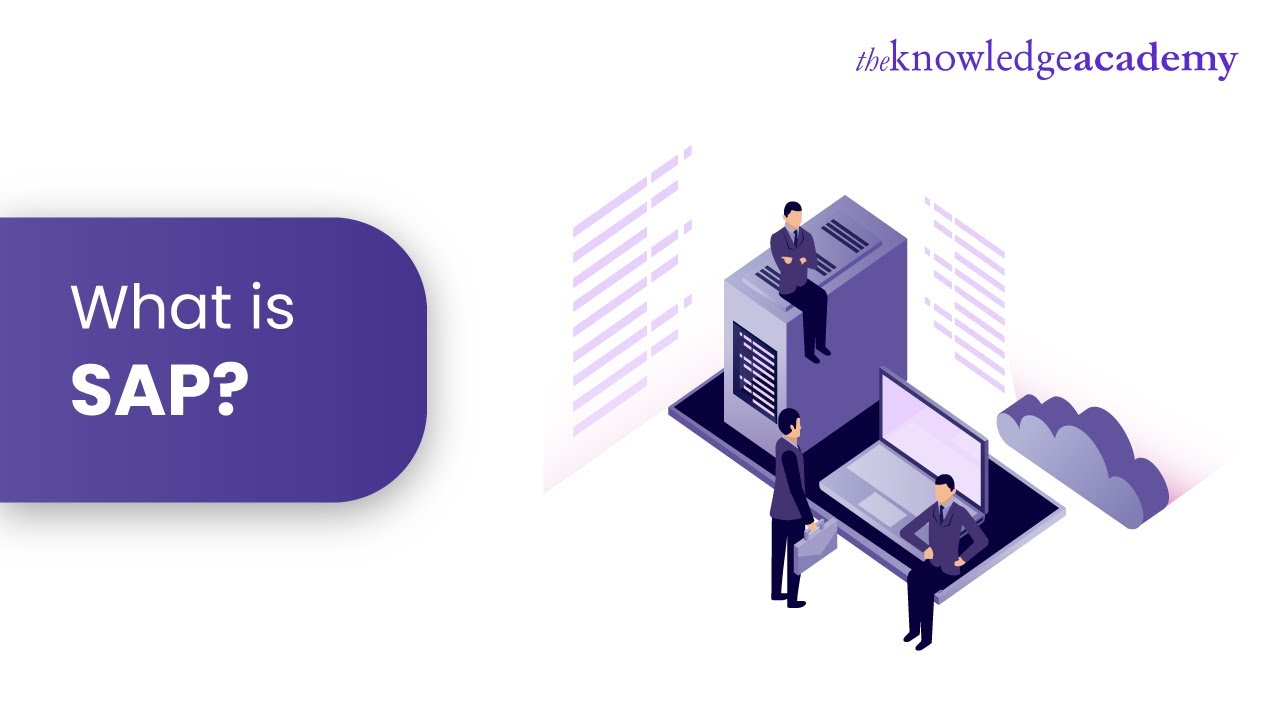What is an ERP?
Summary
TLDRERP, or Enterprise Resource Planning, is a business management software that integrates various business functions, such as accounting, inventory, and order processing, into a centralized database. This system enhances cross-departmental visibility, efficiency, and collaboration by providing a single source of truth. Key benefits include real-time business insights, reduced operational costs, time savings through automation, and improved data integrity. Modern ERP solutions also offer APIs for integration with other business applications, making them a worthwhile investment for companies seeking to streamline operations and enhance capabilities.
Takeaways
- 📚 **ERP Definition**: ERP stands for Enterprise Resource Planning, a business management software that integrates multiple business processes.
- 🔍 **Centralized Data**: ERP consolidates data from various departments into one database, enhancing visibility and collaboration.
- 💼 **Cross-Departmental Integration**: It connects departments and systems, facilitating the sharing of information across the organization.
- 📈 **Operational Efficiency**: ERP systems improve business processes, leading to cost savings and increased efficiency.
- 📊 **Real-Time Insights**: They provide access to real-time data, enhancing decision-making and business insights.
- 🛠️ **Automation**: ERP automates routine tasks, saving time and reducing the need for manual data entry.
- 🔗 **Integration with Other Applications**: Modern ERP software offers APIs for integration with CRM, payment processing, and other business applications.
- 💹 **Long-Term Value**: Despite the fluctuating popularity of the term 'ERP', the functionality it provides remains valuable for businesses.
- 🏆 **Partnerships**: The Answer Company is a certified partner for Sage Intacct, Sage X3, and Acumatica, with over 25 years of experience.
- ❓ **Consulting Services**: The company offers consulting services for businesses interested in ERP software benefits and implementations.
Q & A
What does ERP stand for?
-ERP stands for Enterprise Resource Planning.
What is the primary function of ERP software?
-ERP software is a tool for managing information across various aspects of a business's operations, such as accounting, inventory management, purchasing, and order processing.
How does ERP software consolidate data within a company?
-ERP software consolidates data from multiple departments into one centralized database, improving cross-departmental visibility and collaboration.
What is the central feature of all ERP systems?
-The central feature of all ERP systems is the shared database that supports multiple functions used by different departments within a company.
Why is having a single source of business truths important?
-Having a single source of business truths ensures that all departments rely on the same accurate information, improving efficiency and decision-making.
How does ERP software help in reducing operational costs?
-ERP software helps in reducing operational costs by streamlining business processes and automating routine tasks, thus minimizing the use of separate applications and duplicate data entry.
What are some benefits of ERP software for employee collaboration?
-ERP software improves collaboration by allowing users to share common data across the organization, leading to integrated workflows and a common user experience.
How does ERP software impact user adoption rates and training costs?
-ERP software often leads to higher user adoption rates and lower training costs due to a consistent user experience across different modules of the system.
What are the risks associated with not using ERP software?
-Not using ERP software can lead to risks such as poor data integrity, security issues, and lack of financial controls due to the absence of a centralized system.
How do modern ERP software solutions like Sage Intacct, Sage X3, and Acumatica enhance business capabilities?
-Modern ERP software solutions enhance business capabilities through application programming interfaces (APIs) that allow them to integrate with other critical business applications like CRM, payment processing services, and EDI service providers.
Why is ERP software considered a worthy investment?
-ERP software is considered a worthy investment because it provides broad and robust functionality that is evergreen, helping businesses to operate more efficiently and effectively.
What is the role of The Answer Company in ERP software solutions?
-The Answer Company is a certified Diamond Sage partner and Acumatica Gold partner with over 25 years of experience helping businesses implement and benefit from ERP software solutions.
Outlines

This section is available to paid users only. Please upgrade to access this part.
Upgrade NowMindmap

This section is available to paid users only. Please upgrade to access this part.
Upgrade NowKeywords

This section is available to paid users only. Please upgrade to access this part.
Upgrade NowHighlights

This section is available to paid users only. Please upgrade to access this part.
Upgrade NowTranscripts

This section is available to paid users only. Please upgrade to access this part.
Upgrade NowBrowse More Related Video

What Is SAP | SAP Training | SAP Explained In 4 Minutes | Learn SAP | The Knowledge Academy

Penjelasan Mengenai ERP dan Cara Penggunan Aplikasi Odoo.com

Apa Itu ERP? History, Manfaat, Fitur dan Tips Memilih Vendor ERP!

The EVOLUTION of ERP | @SolutionsReview Explores (#ERPInsightJam)

What is ERP Software? Here is everything you need to know.

Agus Maulana, S.Pd., M.S.Ak. - Introduction to Business Process | Pertemuan 1
5.0 / 5 (0 votes)